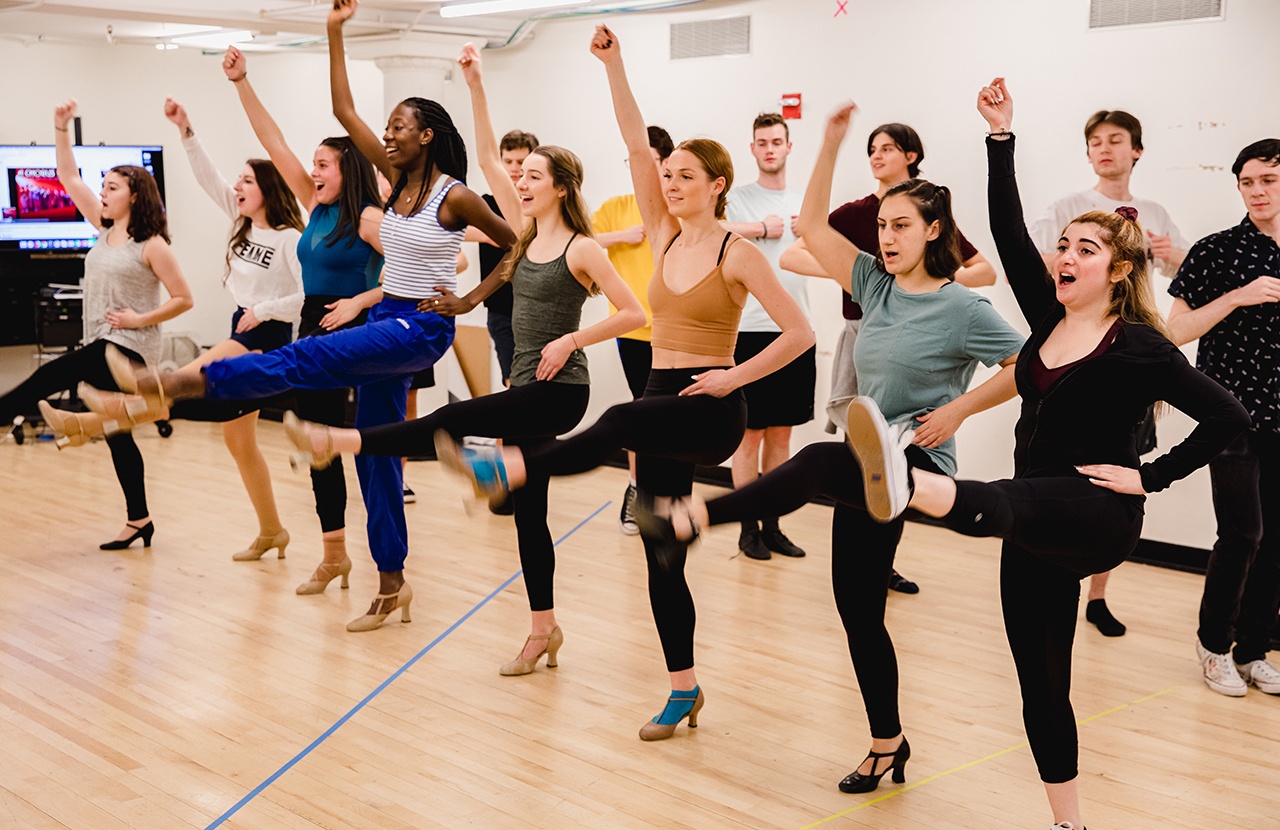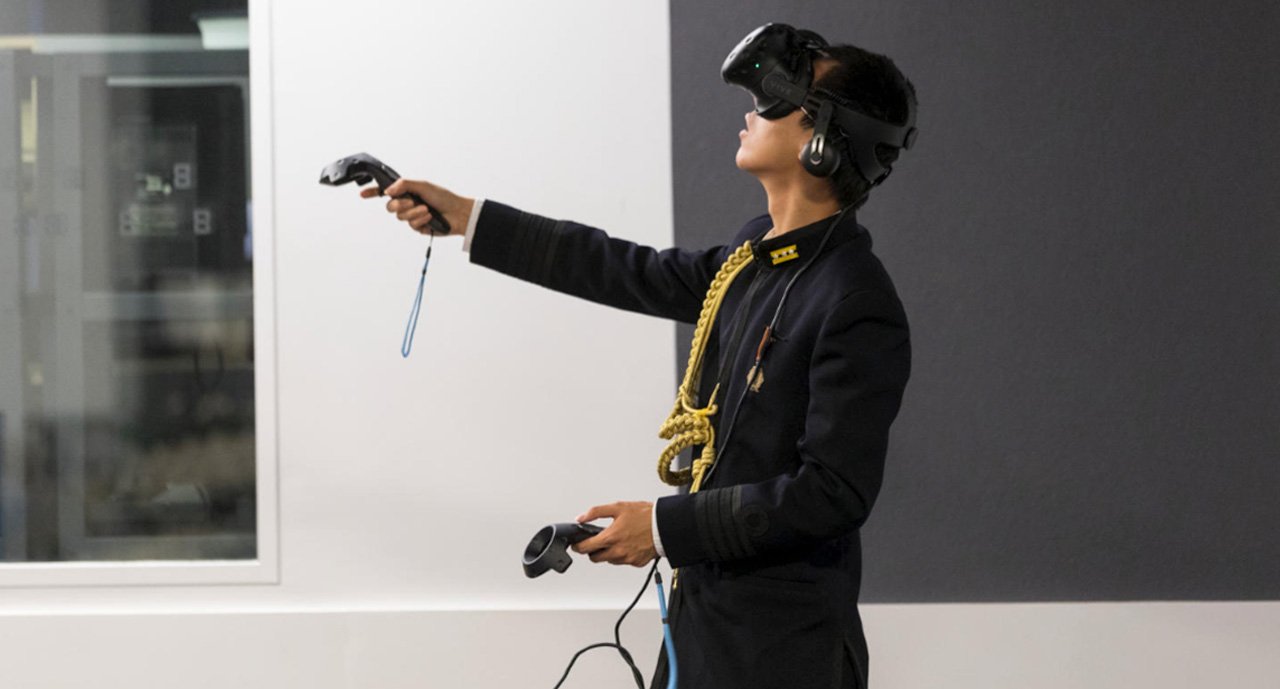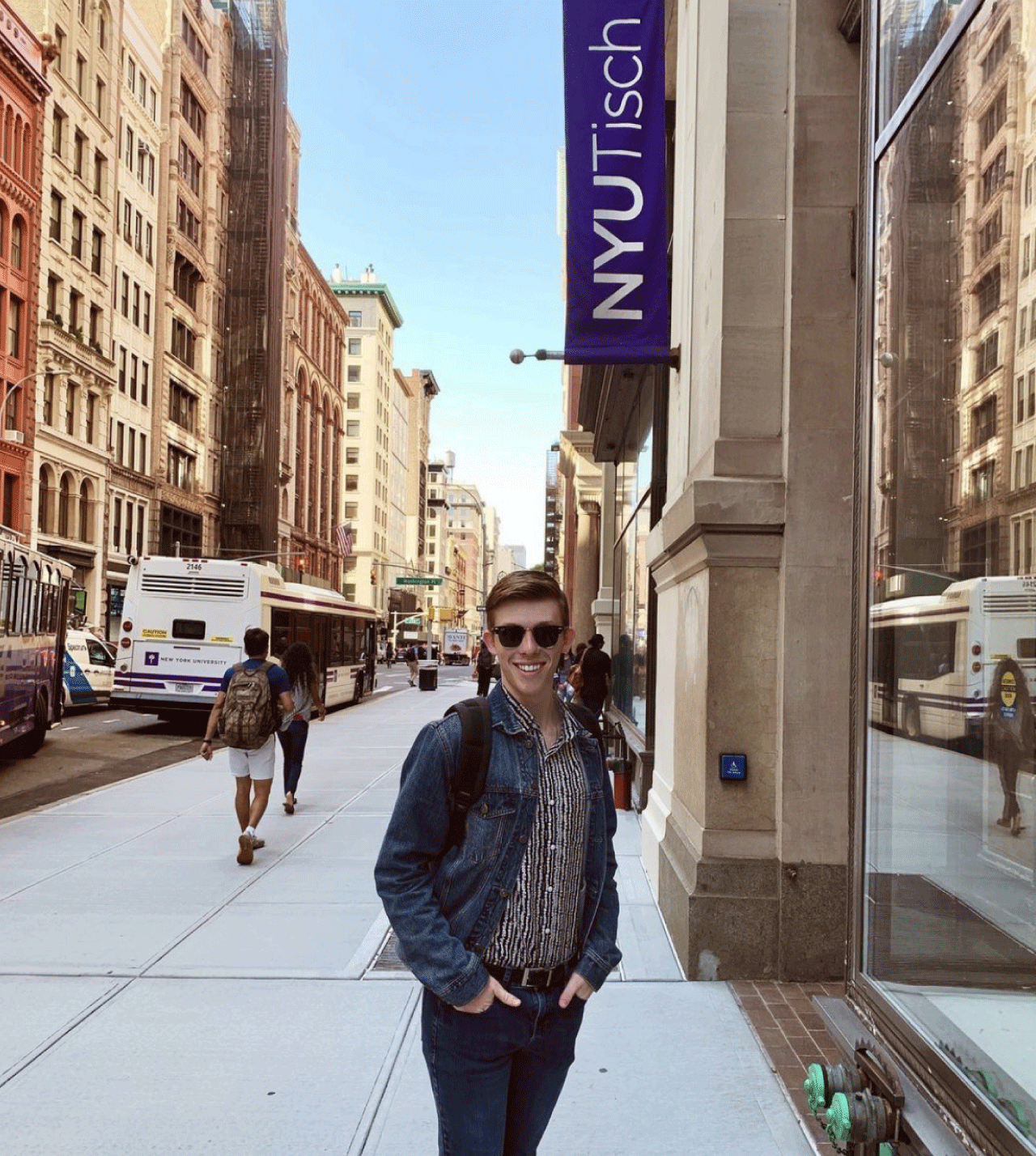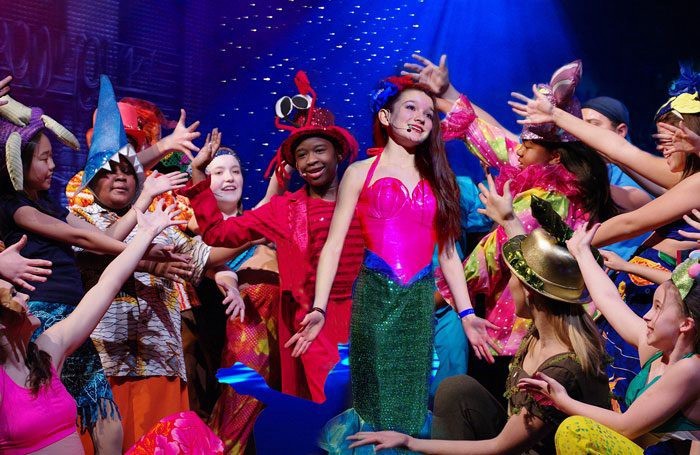
So you want to study musical theatre and be on stage, right? Let’s do it! I spent a decade of my childhood performing Indian dance in regional competitions. And as an active member of my school’s thespian club, I also performed in my high school’s rendition of 42nd Street. Ultimately, I followed a different path in life, though my passion for theatre never faded.
NYU is one of the best for theatre. And there’s no question about it. But with two musical theatre programs at NYU, which is the best fit for you? Both are equally reputable and well-respected, pre-professional programs in the industry. Read below to learn more about the differences.
Steinhardt: Vocal Performance (BM)
NYU’s Vocal Performance major at Steinhardt offers three concentrations: music theatre, contemporary voice, and classical voice. So when you apply to Steinhardt’s program, select Vocal Performance as your major, and then select one of the concentrations.
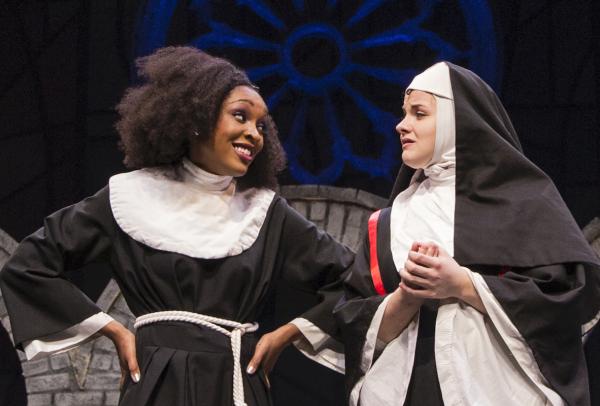
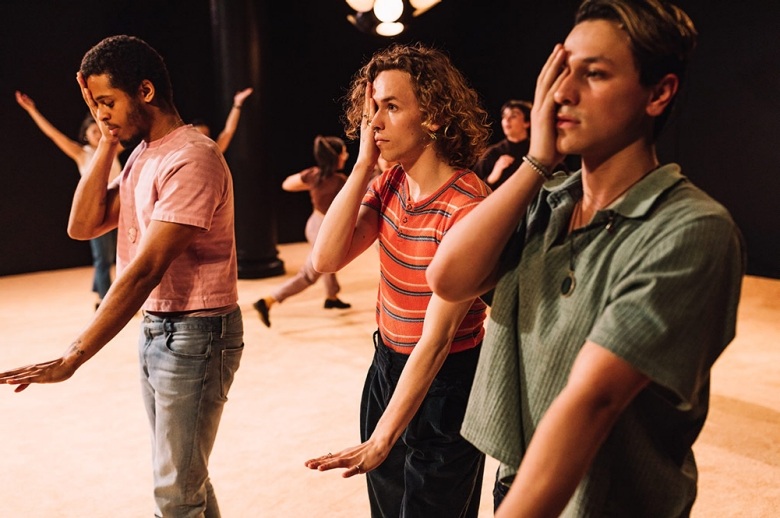
Curriculum
NYU Steinhardt students study with distinguished faculty in private lessons, studio/workshop classes, lecture classes, and master classes. In addition, you’ll perform in productions under the guidance of professional directors, choreographers, conductors, and designers from Broadway and major regional theatre communities. There are weekly, hourlong voice lessons with Steinhardt professors and adjunct faculty who are dedicated to seeing you succeed. Above all, the school prepares you for a career in music theatre.
Steinhardt’s program is not a conservatory program. It’s a liberal arts degree that is far more comprehensive than any BFA program in the country. The program focuses on music (music theory courses include aural skills, history, keyboard skills and so on). During your time at NYU, you will take music theory classes as well as a significant liberal arts curriculum. This allows you to study across the university and pursue multiple interests.
Check out Steinhardt Music Theatre curriculum.
Audition Process
Applicants to Steinhardt’s program must submit a video prescreen (which may lead to an additional audition). Rather than a single long video, the department recommends three shorter clips: the introduction, the first song, and the second song. It’s easier for us to review and easier for you to shoot!
Below are the requirements and suggestions for Steinhardt’s Music Theatre artistic review. Note: The professional quality of the video, lighting, or studio conditions will not influence the review.
Introduction
- Please clearly say your name, the city you are from, and the pieces that you are going to do
- Include the specialization (music theatre) and the degree level (freshman, transfer)
Two songs
- Complete and contrasting songs, no longer than four minutes
- Choose material from music theatre repertoire (avoid rock, pop, country, and jazz) and from two different timespans (pre-1965 and post-1965)
- Demonstrate proficiency in head-voice style of vocalism using legato lines in one of the selections
- Preference for a live pianist accompanist, but due to the current circumstances a recorded track can be used
- No a cappella singing and no accompanying yourself
- Make sure your voice can be heard above the accompaniment
These pieces should demonstrate your vocal, interpretive, and stylistic knowledge. You’ll also upload a résumé and a headshot or photograph along with your prescreen video.
Tisch: Drama (BFA)
Tisch Drama’s musical theatre concentration combines conservatory training, equally focused on acting, singing, and dancing, with a challenging academic education. It’s a program where musical skills are viewed as an essential element of an actor’s expressive vocabulary. The New Studio on Broadway offers NYU’s most concentrated musical theatre program, but students attend voice, music, and dance classes throughout Tisch. Students also participate in full-length musicals at other studios.
To clarify, on your application you will apply to NYU Tisch Drama, not to a particular studio.
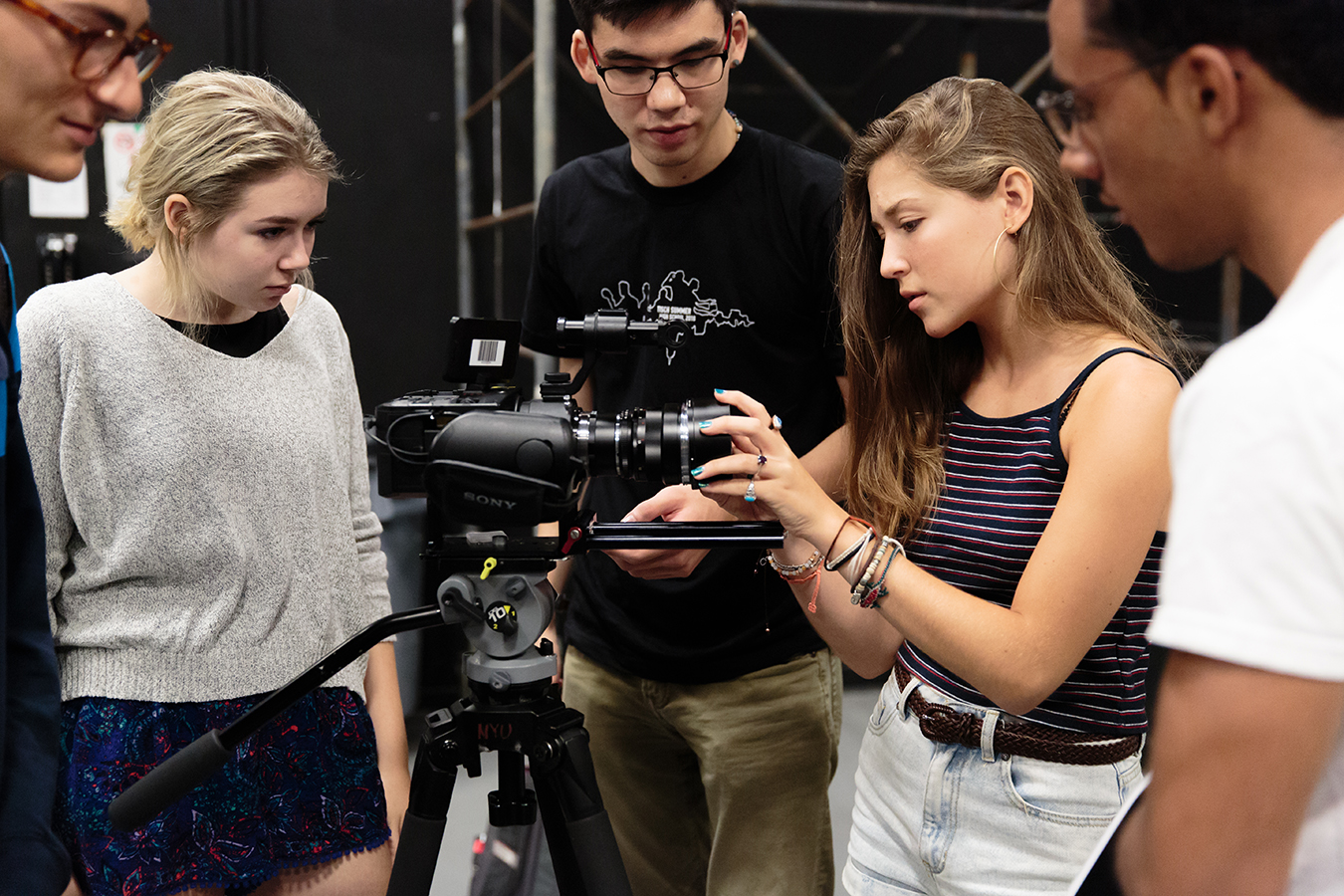
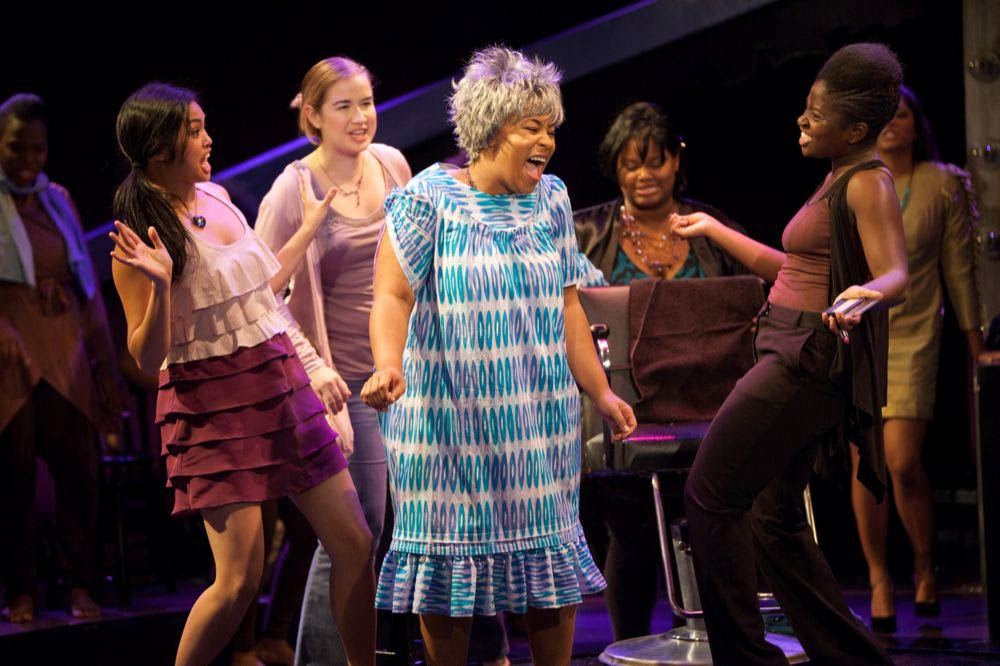
Curriculum
Upon getting into NYU Tisch Drama, the department assigns you into one of eight different primary studios to begin intensive conservatory training towards a robust artistic foundation. Students remain in their primary studios for two full years.
Year one includes foundational courses: acting, dance, speech, spoken voice, and music. Year two builds upon these courses and open up opportunities for collaborations. In addition to the curricular studio classwork, in year two all students perform in a full-length rehearsal project so that they can apply what has been learned in the first two years of training. Students are also eligible to audition for Tisch Drama productions.
Year three and four projects are typically more challenging and may include world premiere productions of collaborative work written by master’s students in the Tisch Graduate Musical Theatre Writing program. Most importantly, an essential goal of year four is providing a bridge from the actor-training environment to the industry and profession.
You can learn more about Tisch’s Musical Theatre curriculum here!
Audition Process
When scheduling your artistic review, the department will ask if you which studios you are interested in applying to. You can choose all studios or musical theatre only. Your answer does not impact your eligibility. All studios: We’ll evaluate you for musical theatre first. If we think you are a good fit, we’ll place you in musical theatre. If not, we may place you in one of the acting studios. Musical theatre only: This option is for those students who want to study musical theatre. If we do not feel you are a match for our musical theatre program, we will consider you you any other alternate programs you listed on your application.
There are three components of your Tisch Musical Theatre artistic review: acting, singing, and dancing.
ACTING
Two contrasting monologues
- Both contemporary (1900 to present), under 90 seconds in length, and presented in English (in your natural voice—no accents!)
- From a published play (no musicals, film/TV scripts, or original material); each monologue should be written as such, not a dialogue pieced and edited together
- Gender of the character need not be a determining factor, and props and costumes are not permitted
- Choose material that is within your age range (roles you would be cast in now)
SINGING
Two contrasting 32-bar song selections
- One 32-bar cut must be from the published musical theatre canon (standard Broadway repertoire)
- One 32-bar cut may be from either musical theatre or a published contemporary piece (may be from rock, pop, hip-hop, jazz, gospel, country, opera, classical, etc.)
The evaluator may test your vocal range. Be prepared to sing additional selections if requested.
DANCING
The purpose of this evaluation is to learn where you are in your own dance/movement life. Are you a serious dancer with years of experience and training? Have you never taken a dance class but like to groove to your favorite song on the radio? Or perhaps you learned some choreography for a musical at school. We want to know where you are right now.
Career Outcomes



